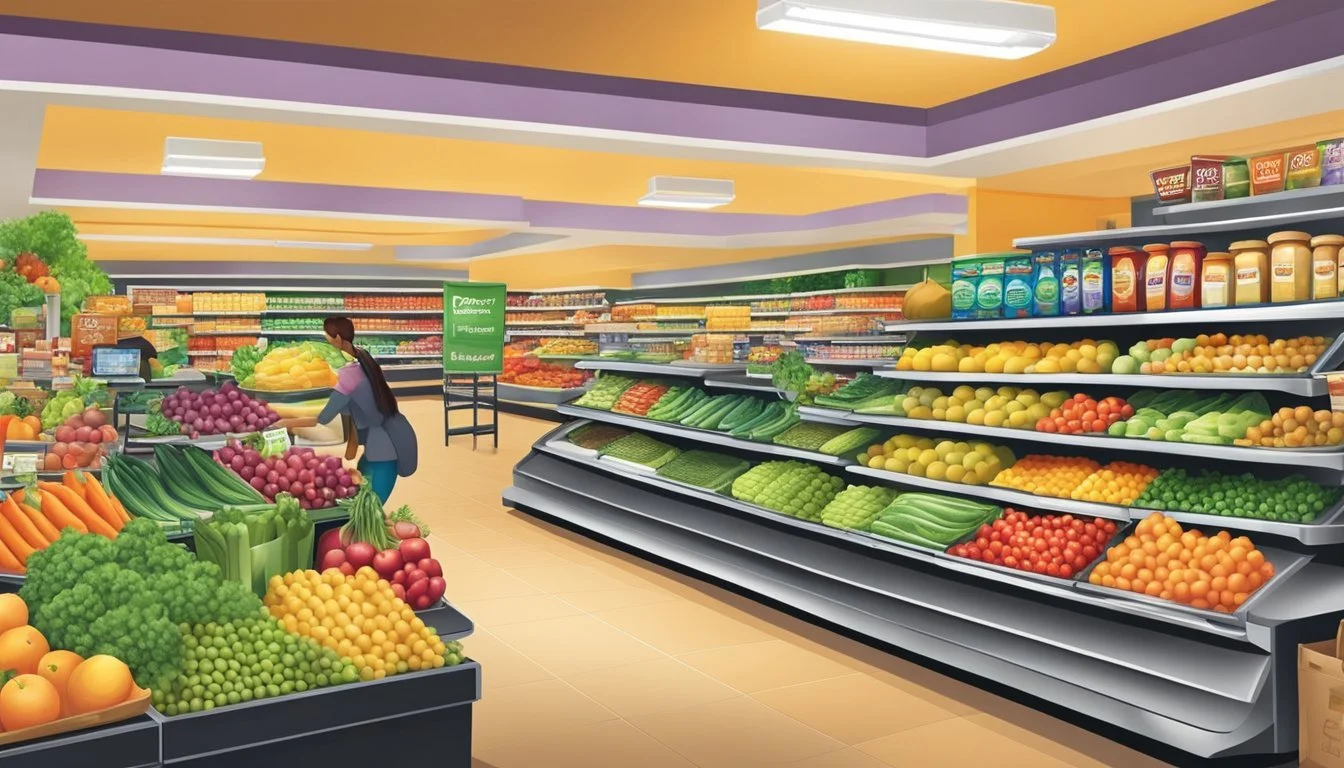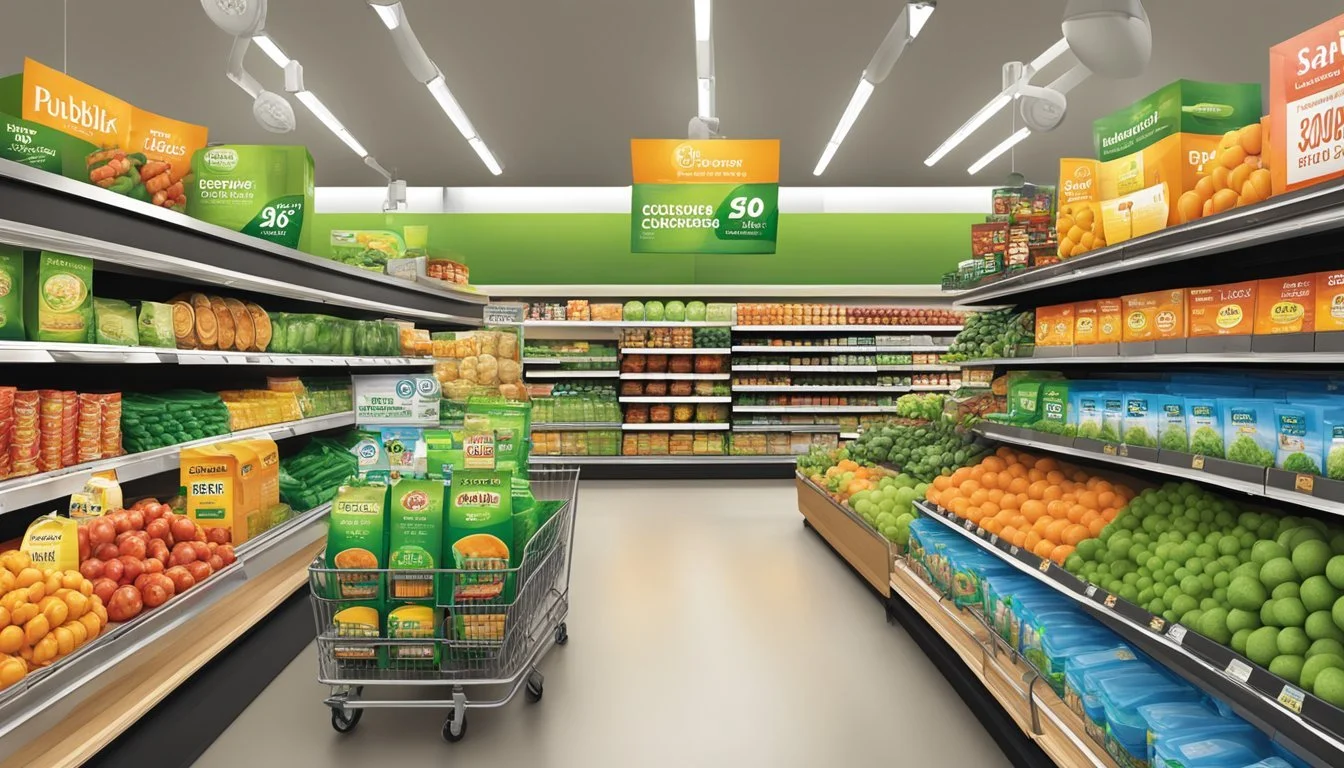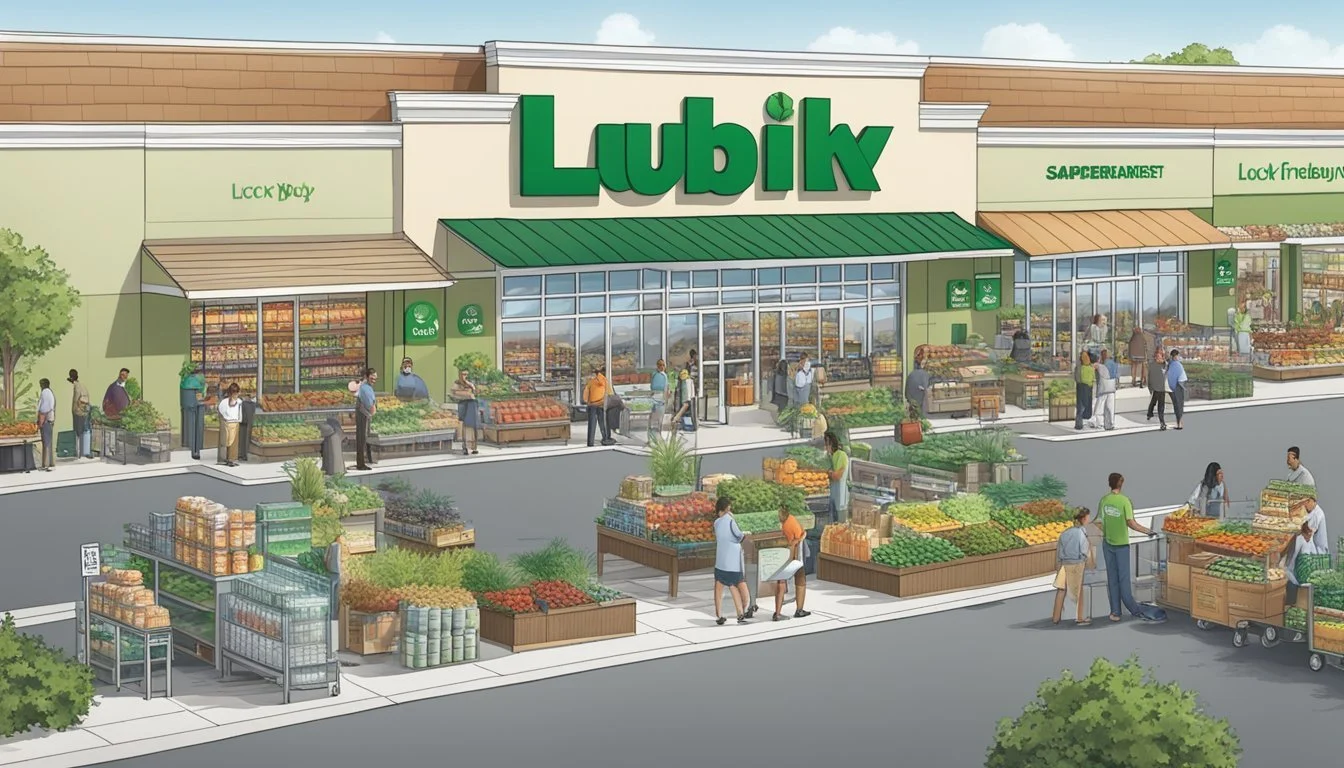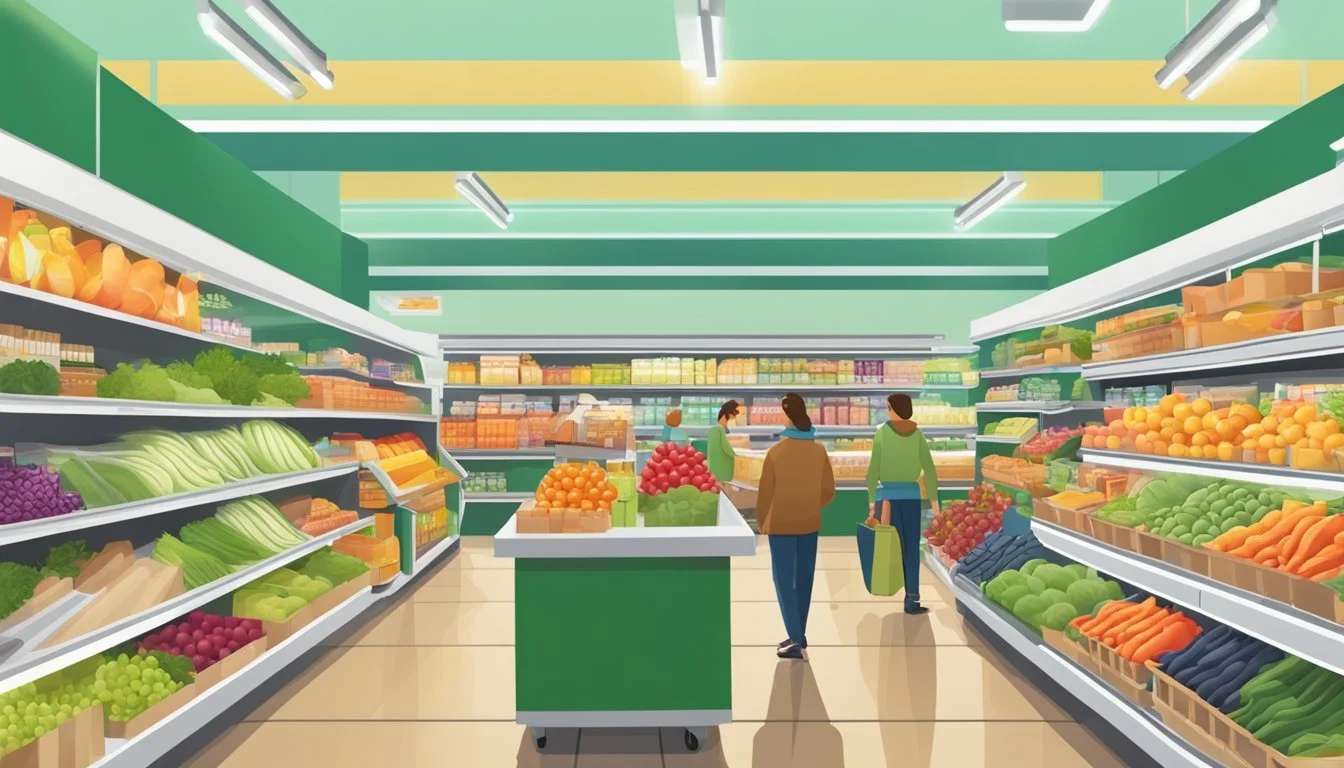Lucky Supermarkets vs Publix
A Comprehensive Comparison of Quality and Value
Lucky Supermarkets and Publix are two prominent grocery chains that offer distinct shopping experiences for customers. Both stores aim to provide quality products and services, but they differ in several key aspects.
Publix generally edges out Lucky Supermarkets in terms of customer satisfaction and overall shopping experience. Publix is known for its excellent customer service, clean stores, and high-quality store-brand products. The company has built a strong reputation in the southeastern United States for its friendly atmosphere and commitment to customer satisfaction.
Lucky Supermarkets, while less widespread than Publix, offers competitive prices and a good selection of products. The chain focuses on providing value to shoppers through regular sales and promotions. Both stores strive to meet the diverse needs of their customers, but Publix's stronger emphasis on service and quality gives it a slight advantage in the eyes of many consumers.
Corporate Overview
Lucky Supermarkets and Publix are two prominent grocery chains in the United States, each with its own unique history and growth trajectory. These retailers have shaped the grocery landscape in their respective regions over decades of operation.
History and Growth of Lucky Supermarkets
Lucky Supermarkets began in 1935 when Charles Crouch opened the first store in San Leandro, California. The chain expanded rapidly throughout Northern California in the following decades.
By the 1980s, Lucky had become one of the largest supermarket chains in the state. In 1998, Albertsons acquired Lucky Stores, but the Lucky brand was eventually revived in 2006 under new ownership.
Today, Lucky Supermarkets operates primarily in Northern California. The chain focuses on providing fresh produce, quality meats, and competitive prices to its customers.
History and Growth of Publix
George W. Jenkins founded Publix in 1930 in Winter Haven, Florida. The company grew steadily, expanding throughout Florida and later into other southeastern states.
Publix is now the largest employee-owned company in the United States, with over 250,000 associates. The chain operates 1,351 stores across Florida, Georgia, Alabama, Tennessee, South Carolina, and North Carolina.
Known for its exceptional customer service, Publix has earned numerous accolades. Forbes ranked Publix No. 4 on its inaugural Halo 100 list and No. 1 in the grocery industry for customer service and charitable efforts.
Publix continues to grow, focusing on its core values of quality products, friendly service, and community involvement.
Store Layout and Experience
Lucky Supermarkets and Publix offer distinct shopping environments tailored to their customers' needs. Both chains prioritize convenience and cleanliness, but differ in their overall design approach and customer experience.
Design and Convenience
Lucky Supermarkets typically feature a no-frills layout focused on efficiency. Wide aisles and clear signage make navigation straightforward. The stores often have a more utilitarian feel, with basic shelving and minimal decor.
Publix, in contrast, aims for a more upscale atmosphere. Their stores boast carefully designed layouts with attractive displays and specialized departments. Publix often includes features like in-store cafes, cooking demonstration areas, and expanded deli sections.
Both chains organize products logically, but Publix tends to offer more variety within each category. Lucky Supermarkets may have a slight edge in quick trips due to its simpler layout.
Cleanliness and Shopping Experience
Cleanliness is a priority for both Lucky Supermarkets and Publix. Regular maintenance keeps floors clean and shelves well-stocked. Publix is particularly known for its spotless stores and meticulous attention to detail.
Lucky Supermarkets provides a functional shopping experience. Checkout lines move efficiently, and staff are generally helpful when needed. The focus is on getting customers in and out quickly.
Publix emphasizes customer service as a key part of the shopping experience. Employees are trained to be friendly and proactive in assisting customers. The stores often feel less crowded and more relaxed, even during peak hours.
Both chains maintain high standards of food safety and product freshness. Publix's commitment to customer satisfaction often results in a more personalized experience.
Product Range and Availability
Publix and Lucky Supermarkets offer diverse product selections to cater to different customer needs. Both stores stock essential groceries, but their offerings vary in certain key areas.
Quality of Produce and Meat
Publix is known for its high-quality produce and meat departments. The store takes pride in sourcing fresh, local produce whenever possible. Their meat counter features a wide range of cuts, including USDA Choice beef and antibiotic-free options.
Lucky Supermarkets also emphasizes fresh produce, often featuring locally grown fruits and vegetables. Their meat department offers a selection of fresh cuts, though the variety may be more limited compared to Publix.
Both stores implement strict quality control measures to ensure freshness. However, Publix tends to receive higher customer ratings for produce quality and meat selection.
Availability of Organic and Specialty Products
Publix has expanded its organic and specialty product offerings in recent years. The store carries a wide range of organic produce, meats, and packaged goods under its GreenWise brand.
Lucky Supermarkets also stocks organic options, though the selection may be smaller than Publix. They focus on providing affordable organic choices to meet growing consumer demand.
For specialty products, Publix often has a more extensive selection, including international foods and gourmet items. Lucky Supermarkets may have a more limited range of specialty products, focusing on popular ethnic foods relevant to their local customer base.
Both stores offer prepared foods, with Publix generally providing a larger variety of ready-to-eat meals and custom-made sandwiches.
Pricing and Value for Money
Lucky Supermarkets and Publix offer distinct pricing strategies and value propositions. Their approaches to everyday prices and loyalty programs impact shoppers' overall grocery costs.
Comparison of Everyday Prices
Lucky Supermarkets generally provides lower everyday prices compared to Publix. A typical grocery basket at Lucky can cost 5-10% less than at Publix. Produce and store-brand items often show the largest price differences.
Lucky's pricing strategy focuses on attracting budget-conscious shoppers. They frequently offer deals on staple items like milk, eggs, and bread.
Publix, while typically pricier, emphasizes quality and customer service. Their produce and meat departments command higher prices but are known for freshness and selection.
Store-brand products at both chains offer savings. Lucky's store brands are usually cheaper, while Publix's private labels balance affordability with perceived quality.
Discount and Loyalty Programs
Both stores use loyalty programs to provide additional value. Lucky's rewards program offers personalized discounts and fuel points redeemable at participating gas stations.
Publix doesn't have a traditional loyalty card but provides digital coupons through their app. They also offer a popular "Buy One, Get One Free" program on rotating items.
Lucky frequently distributes discount codes through their newsletter and app. These codes can lead to significant savings on specific products or entire purchases.
Publix is known for accepting competitor coupons and offering rain checks on out-of-stock sale items. Their weekly ad features numerous deals, though not always as deep as Lucky's discounts.
Both chains provide senior discounts on certain days, adding value for older shoppers.
Customer Service and Support
Publix and Lucky Supermarkets prioritize customer satisfaction through various services and support channels. Both chains offer in-store assistance and online shopping options to meet diverse customer needs.
In-Store Services
Publix excels in customer service, consistently ranking high in industry surveys. Their employees are known for being helpful and friendly. Publix stores often feature service desks where customers can get assistance, make returns, or obtain store information. Many locations offer carry-out service to help shoppers with their groceries.
Lucky Supermarkets also provides in-store customer support. Their employees assist shoppers in finding products and answering questions. Lucky stores typically have customer service counters for returns, exchanges, and general inquiries.
Online Shopping and Customer Support
Publix offers a user-friendly website and mobile app for online grocery shopping. Customers can place orders for pickup or delivery. The chain provides phone and email support for online order issues.
Lucky Supermarkets has an online presence, though less extensive than Publix. Their website allows customers to view weekly ads and create shopping lists. Lucky's online support options include email and social media channels for customer inquiries.
Both chains strive to address customer concerns promptly, whether in-store or online. Publix tends to have more comprehensive digital support services compared to Lucky Supermarkets.
Sustainability and Community Impact
Lucky Supermarkets and Publix have implemented various initiatives to reduce their environmental footprint and support local communities. Both chains recognize the importance of sustainable practices and community engagement in the grocery industry.
Environmental Initiatives
Lucky Supermarkets focuses on energy efficiency and waste reduction. The chain has installed LED lighting and energy-efficient refrigeration systems in many stores. They also prioritize recycling programs for cardboard, plastic, and organic waste.
Publix has made significant strides in sustainability. In 2022, the company was recognized as a Recycling Champion by the Florida Recycling Partnership Foundation. Publix recycled hundreds of millions of pounds of cardboard, plastic, paper, and hard-to-recycle items like foam.
Both chains have introduced reusable bag programs to reduce plastic waste. They also work with suppliers to source more sustainable and locally-produced products where possible.
Community Engagement and Support
Lucky Supermarkets partners with local food banks and charitable organizations to donate surplus food and support hunger relief efforts. The chain also sponsors community events and youth sports teams in areas where they operate.
Publix is known for its strong commitment to community involvement. The company ranks highly in customer service and charitable giving. Publix supports various local initiatives, including education programs, disaster relief efforts, and health-related causes.
Both chains prioritize hiring from local communities and providing job training opportunities. They also work with local farmers and producers to stock regional products, supporting local economies.
Brand Perception and Reputation
Lucky Supermarkets and Publix have distinct brand perceptions shaped by consumer experiences and industry evaluations. Their reputations reflect different approaches to customer service, product quality, and community engagement.
Consumer Reports and Surveys
Lucky Supermarkets, primarily operating in Northern California, maintains a regional presence with a loyal customer base. Surveys indicate customers appreciate Lucky's affordable prices and frequent promotions.
Publix, on the other hand, consistently ranks high in national customer satisfaction surveys. The American Customer Satisfaction Index often places Publix among the top grocery chains in the country.
Consumer Reports has praised Publix for its cleanliness, organized stores, and helpful staff. Lucky Supermarkets receives positive feedback for its value-oriented offerings and neighborhood-focused approach.
Public and Expert Reviews
Expert reviews highlight Publix's commitment to customer service and fresh produce quality. The chain's bakery and deli departments frequently receive accolades from food critics and industry publications.
Lucky Supermarkets garners positive reviews for its competitive pricing and diverse product selection catering to local tastes. Food industry experts note Lucky's efforts to maintain a balance between affordability and quality.
Online customer reviews often mention Publix's friendly atmosphere and employee ownership model as key differentiators. Lucky Supermarkets' reviews frequently cite the stores' convenient locations and community involvement as strengths.
Both chains have faced scrutiny over sustainability practices, with Publix making more public commitments to environmental initiatives in recent years.
Financial Services and Payment Options
Both Lucky Supermarkets and Publix offer various payment methods and financial services to enhance customer convenience. Their options range from traditional cash and card payments to modern digital wallets and financing plans.
Standard Payment Methods
Lucky Supermarkets and Publix accept cash, debit cards, and major credit cards. Both chains have embraced contactless payments, allowing customers to use mobile wallets like Apple Pay and Google Pay. EBT cards are also accepted for eligible purchases.
Publix goes a step further by offering check-cashing services and money orders at their customer service counters. This can be particularly helpful for customers without traditional banking access.
Financing and Payment Plans
Publix provides more extensive financing options compared to Lucky Supermarkets. They offer the Publix GreenWise Market Credit Card, which allows customers to earn rewards on purchases.
Some Publix locations support Apple Pay Later, enabling customers to split purchases into four interest-free payments. Shop Pay Installments is another option available at select Publix stores, letting shoppers divide larger purchases into smaller, more manageable payments.
Lucky Supermarkets' financing options are more limited. They do not currently offer their own store credit card or support installment plans like Apple Pay Later or Shop Pay Installments.
Conclusion
Lucky Supermarkets and Publix both offer unique shopping experiences for customers. Lucky Supermarkets emphasizes affordable prices and local products. Publix focuses on customer service and a wide selection of high-quality items.
Lucky's strength lies in its competitive pricing, making it attractive for budget-conscious shoppers. Their stores often feature locally-sourced produce and specialty items.
Publix excels in cleanliness, organization, and friendly staff. Their bakery and deli departments are particularly well-regarded by customers. The chain also offers a popular rewards program.
Store locations play a significant role in choosing between the two. Lucky Supermarkets has a stronger presence in certain regions, while Publix is more widespread in the southeastern United States.
Ultimately, the better choice depends on individual preferences and priorities. Those seeking lower prices may prefer Lucky Supermarkets. Shoppers who value a more upscale experience and extensive selection might lean towards Publix.
Both chains strive to meet the diverse needs of grocery shoppers. They continue to adapt and improve their offerings to stay competitive in the ever-evolving supermarket landscape.










